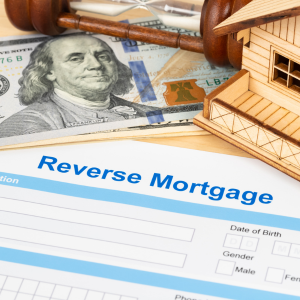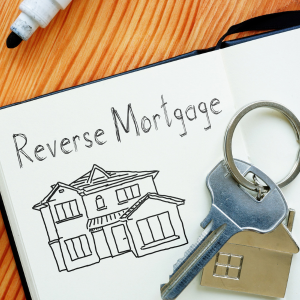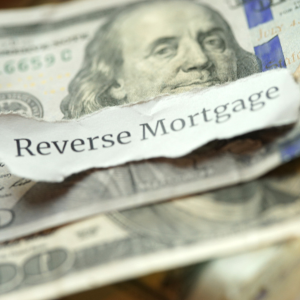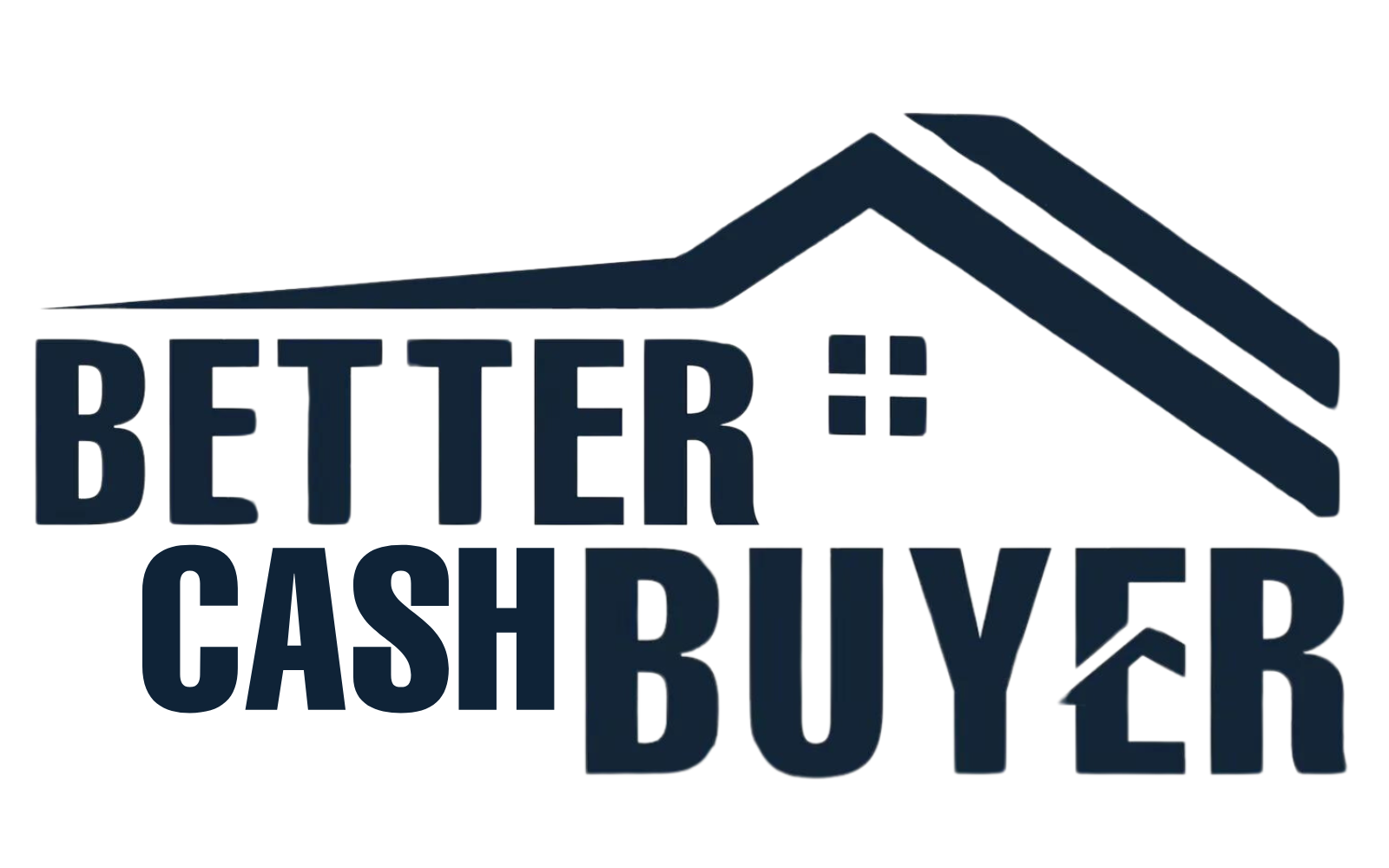
Selling your New Jersey home with a reverse mortgage? Better Cash Buyer can help you navigate the sale and maximize your home’s value.
Understanding Reverse Mortgages in New Jersey
Many homeowners in New Jersey use reverse mortgages as a way to get cash out of their homes after they retire. This type of financing can be quite helpful, but you need to know how it works in order to make smart choices. Find out how a reverse mortgage works and what the requirements are in New Jersey. Being well-informed can help you figure out if this option is right for you and your financial goals. If you have the correct knowledge, you may confidently think about how a reverse mortgage might fit into your plans for retirement.
How Does a Reverse Mortgage Work in New Jersey?
Reverse mortgages let over-62s cash out equity. Stay in charge and avoid mortgages. Seniors seeking extra cash may try this. The lender is paid. Reverse mortgages incur debt. Homeowners forgo payments until selling, moving, or dying. The sale of property pays off the loan principal, interest, and fees. Owners or recipients get equity.
The government limits reverse mortgages. Regulations safeguard property owners. Interest, age, and property worth limit borrowing. To keep borrowers financially committed to their properties, these factors determine the maximum loan amount. Insurance, taxes, and maintenance are the landowners’ responsibility. Know the loan balance and interest accumulation. You may design an efficient reverse mortgage management plan in New Jersey’s unique real estate market.
Reverse mortgages include credit lines, lump sums, and periodic payments. Buyers might pick from numerous financial aims. Lines of credit might help you plan for unforeseen expenses. Before borrowing, weigh all options against finances and ambitions. This data might help you choose a New Jersey reverse mortgage for real estate and finances.
Eligibility Criteria for a Reverse Mortgage in New Jersey
New Jersey reverse mortgage candidates must know eligibility. This financial package is for qualified senior homeowners. The homeowner must be 62 and live there. Lenders and borrowers are protected by home ownership.
A property has standards. FHA oversees single-family homes, townhouses, certain condos, and prefabricated homes. FHA must assess the home’s market value, safety, and structural integrity before approval. Its valuation and maximum loan amount meet the homeowner’s market expectations.
Financial status also impacts eligibility. The lender checks applicants’ tax, insurance, and house upkeep capacity. Lender and homeowner are financially safeguarded after payments are disbursed. These elements help homeowners feel confident and prevent problems.
Loan applicants must attend a counselor-supervised consumer information session. This webinar covers reverse mortgage financial implications, alternatives, and the long-term effects on homeowners. Understand these New Jersey reverse mortgage eligibility requirements for retirement financial stability.
Sell your home for cash in New Jersey quickly and hassle-free.
Selling a Home with a Reverse Mortgage in New Jersey

Transacting a property under a reverse mortgage involves a thorough understanding of complex financial factors and legal obligations. New Jersey homeowners need to be informed about crucial steps for managing their reverse mortgage, which include addressing the loan balance and evaluating their home equity. Grasping the complete process enhances the efficiency of transactions while protecting the financial interests of everyone involved. A comprehensive grasp of this process in New Jersey’s unique real estate landscape is crucial, as it influences loan settlement procedures, affects loan balances, and shapes the dynamics of home equity.
Steps to Settle the Reverse Mortgage in New Jersey
It’s important to settle a reverse mortgage before you sell your home, but you have to be very careful to follow certain steps to meet your legal and financial responsibilities. The first thing that needs to be done is to pay off the loan in full. This is usually done by telling the lender that you want to sell. A payoff quote from the lender will include the amount of the reverse mortgage loan, interest that has been added, and any fees. This makes sure that everyone knows how much of a deal is needed. It is very important to do a thorough financial analysis to see how the sale profits fit in with the remaining reverse mortgage loan. Hiring an attorney who specializes in mortgage law can help you get through the complicated process and make sure you follow all local and federal rules. As a result, everyone can talk to each other easily, which protects the homeowner’s interests and makes the law requirements clear. Information is very important when it comes to reverse mortgages because each step needs to be carefully documented and followed by the rules.
When homeowners sell their homes, they need to plan ahead to get the best financial results. The New Jersey real estate market can have a big effect on home prices, so it’s best to talk to an expert about the market. They will help people who want to sell their homes find listing tactics that will help them reach their financial goals and get the most money for their homes. It’s also important to understand the loan terms. With some reverse mortgages, the owners can pay back the loan with their own money instead of selling the house. These details help homeowners decide if selling is the best choice or if giving the asset to family members would be better.
Finally, homeowners should keep in touch with their lawyer, financial advisor, and loan officer during the entire selling process to make sure that all of their legal and financial paperwork is in order. This way of working together lowers risks and increases the chances of meeting both legal standards and personal financial goals. By understanding and quickly carrying out these steps, you can successfully sell your home and keep as much of the cash as possible after paying off your mortgage.
Impact on Loan Balance and Equity
The effect of transferring ownership of a property financed through a reverse mortgage on the outstanding loan amount and the remaining home equity is significant and complex. Upon the sale of a property by a landowner, the resulting proceeds are chiefly allocated to settle the remaining balance of the reverse mortgage loan. This encompasses the principal amount, accrued interest, and any associated fees. The residual amount remaining after settling the loan constitutes the home equity, a vital factor in assessing the homeowner’s financial stability subsequent to the sale. Comprehending the manner in which the loan balance varies is essential. Over the course of time, as the reverse mortgage loan balance increases owing to interest accumulation, the homeowner’s equity in the property may diminish. Home equity in New Jersey is notably influenced by the state of the real estate market and variations in property values, necessitating a comprehensive financial strategy.
In evaluating the influence, it is essential to acknowledge that a strategically timed transaction can enhance the preservation of home equity. By monitoring fluctuations within the real estate market, property owners are able to adopt strategic and proactive measures to sell their properties during periods when market conditions are conducive to elevated valuations. This necessitates a comprehensive evaluation of existing property valuations and future projections, a domain in which real estate experts provide indispensable expertise. Furthermore, comprehending clauses specific to reverse mortgages, such as non-recourse provisions, is of paramount importance. These provisions ensure that homeowners or their successors are not held responsible for any deficiency should the sale price of the property fail to fully satisfy the remaining loan balance. This provides a financial safeguard by restricting liabilities to the limited equity of the property upon sale.
Moreover, consulting a financial advisor to reassess financial objectives facilitates the efficient utilization of home equity. This reassessment facilitates the formulation of post-transaction financial strategies, such as reallocating the equity into alternative assets or settling existing financial liabilities. Through staying well-informed and conducting meticulous planning, householders are able to effectively oversee their financial trajectory following a sale, ensuring alignment with the overarching objectives of financial stability.
At Better Cash Buyer, we buy houses in Hackensack and nearby cities, making selling fast and hassle-free.
Real Estate Market Considerations in New Jersey

It’s important to understand how the New Jersey real estate market works if you want to sell a home with a reverse mortgage. Figuring out how much your home is worth and coming up with effective ways to market it takes careful thought at every step. The local real estate market is very important to your ability to sell, and making the right plans can help you make more money. This part will help you figure out how much your home is really worth and how to market it effectively, which will help you get through the tricky parts of selling in today’s market.
How to Assess Property Value in New Jersey
Knowing the value of a reverse mortgage home is crucial when selling it. A detailed market analysis is the first step in valuing a property. A comparative market analysis (CMA) is a key tool for real estate and other professionals. To do this, compare the prices of nearby homes like yours and consider size, location, and features. Homeowners benefit from working with a New Jersey-savvy real estate professional. They provide information on trends, price changes, and buyer expectations to help you set a competitive and reasonable house price.
A full house appraisal is another crucial step in property valuation. An assessment by a professional appraiser provides an unbiased estimate of property value. Different from CMA. The appraiser analyzes the home’s condition and features for the market. Knowing the value of your house with a reverse mortgage can affect your equity after selling and paying down the mortgage. After the sale, this equity, the portion of the home’s value left after the reverse mortgage debt is paid off, is crucial for financial planning.
Homeowner self-assessments are also helpful. This entails honestly assessing the home’s condition and determining what repairs or renovations are needed to increase its value. Adding paint, fixtures, and landscaping may make a house more comfortable. Knowing about interest rates and the housing sector will assist you in determining your home’s value in the current real estate market. Careful planning and professional help can help you understand your property’s value and find good strategies to sell it.
Effective Strategies for Listing and Marketing Your Home in New Jersey
When selling a home, especially one that is attached to a reverse mortgage, it is very important to come up with good listing and marketing plans. Homeowners may get serious buyers and good sales results by using tried-and-true real estate strategies. The first step is to write a listing description that grabs people’s attention. This should not just talk about the home’s physical features, but also its geographical perks, including being close to public transportation and facilities. These are frequently important selling aspects in New Jersey’s diverse real estate market.
You can’t say enough about professional photography; high-quality photos may make a listing much more appealing. Investing in photos that show off the greatest parts of the home can make those who are looking online more likely to come see it in person. Virtual tours have also become more popular. They let potential buyers see the property in a more realistic way from the comfort of their own homes. This method works especially well for reaching a wider audience and going beyond local markets.
Using internet marketing is another key tactic. Social media, real estate websites, and even search engine ads are all examples of platforms that let you target your adverts to people who are most likely to be interested in your property. Hosting open houses, whether online or in person, can help potential buyers imagine living in the property and get a feel for it. This goes along with digital marketing. Working with a good real estate professional ensures that these techniques are in line with what buyers want and how they act in the market right now.
Finally, the time you put your property on the market can have a big effect on how well it sells. Most of the time, real estate professionals tell people to list their homes during the busiest times of the year, which are usually spring or early fall. But it’s important to know about New Jersey’s distinct market cycles and economic situations. A good marketing campaign that is based on strategic timing and local real estate trends may get the most people interested in buying your home and make sure you get the most money from the sale. If you plan and carry out your marketing well, it can be a simple and gratifying process.
Market your home effectively with smart pricing, great presentation, and targeted promotion. For more help, Contact Us at Better Cash Buyer.
Post-Sale Financial Planning in New Jersey

There are a number of non-transactional things to think about when selling a reverse mortgage home in New Jersey. After buying something, you need to make precise financial plans to make sure your money stays stable in the long run. It is very important to carefully plan how to use sales income and how to handle future financial obligations. These tactics get the most money out of a real estate deal. They are made to fit each person’s financial goals. After a deal, resource allocation analysis and strategic financial operations can help set the stage for a bright future.
Allocating Proceeds from the Sale in New Jersey
Splitting New Jersey reverse mortgage earnings is critical. Money management is essential for financial stability. Optimize reverse mortgage. The money pays off the reverse mortgage first. This includes interest, principal, and closing costs. Planning is essential since any money left after paying off the loan could affect the homeowner.
A diverse property sales residual portfolio provides financial security. Find low-risk bonds, mutual funds, and stocks that meet your risk tolerance and financial goals. Advisor-designed investment portfolios suit future needs and make money. Retirement funds guarantee income.
Reducing medical and credit card debt is smart, too. Reduce high-interest debts to lower property owners’ monthly costs and financial instability. Real estate investing can stabilize finances, reduce taxes and maintenance, and allow people to retire in a smaller home.
Funds for emergencies prevent financial problems. Unexpected expenses may not affect this money. Trusts and estate planning protect family finances and inheritance.
Divide the share sale earnings fairly after the reverse mortgage settlement. Together, real estate experts and financial advisors can help you plan for your future and money after the sale.
Looking to sell your home? Better Cash Buyer offers fair cash offers, manages the entire process, and ensures a seamless sale. Call (347) 386-2549 to get started today!
FAQs:
What is a Reverse Mortgage and How Does It Work in New Jersey?
The reverse mortgage lets homeowners over 62 cash out their equity without monthly payments. Lenders don’t pay homeowners. Home sales or death pay off the debt and interest. New Jersey retirees get money via reverse mortgages. This mortgage is federally compliant.
What Are the Eligibility Requirements for a Reverse Mortgage in New Jersey?
You must be 62, live in New Jersey, and meet FHA standards for a reverse mortgage. The house must be an FHA-approved single-family, townhome, or condo. A thorough inspection and financial review ensure tax and insurance payments.
How Do You Sell a Home With a Reverse Mortgage in New Jersey?
Inform the lender of your debt and use the sale proceeds to pay off the reverse mortgage. A lawyer can help you sell at the right time and market your firm. Financial planning preserves post-sale equity.
How Does Selling a Home With a Reverse Mortgage Affect Home Equity?
Reverse mortgage earnings from home sales cover the loan, interest, and fees. Remnants affect property equity. Market circumstances and home values affect equity outcomes by affecting market assessments and sales timing. Non-recourse reverse mortgages protect homeowners if the deal fails.
Why is Professional Advice Important When Handling Reverse Mortgages?
Understanding reverse mortgage legal and financial difficulties requires professional advice. Legal, financial, and real estate professionals may handle compliance, market strategy, and post-sale financial planning. This assures house sellers make smart judgments, protect their interests, and maximize reverse mortgage profits.
Helpful New Jersey Blog Articles
- How to Avoid Closing Costs in New Jersey
- How To Remove Your Name From A New Jersey Mortgage
- Optimal Seasons For Selling Your Home In New Jersey
- Selling Your Investment Property In New Jersey
- Buying A New Jersey Home Before Selling Your Current One
- Refinancing Your Home After Divorce In New Jersey
- Exiting An HOA In New Jersey
- Fixing Up A House To Sell In New Jersey
- Selling Home with Reverse Mortgage in New Jersey
- Selling a House to a Family Member in New Jersey
- How to Sell a House With Code Violation in New Jersey
- Can I Sell My House Below Market Value in New Jersey?
- How Do I Short-Sell My House in New Jersey

